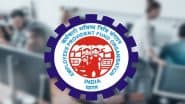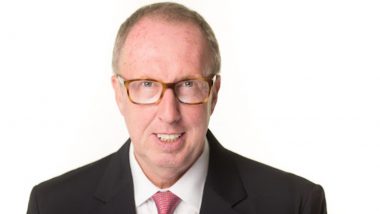Brian Murphy's career has run the spectrum, from early-stage biotech companies to major entertainment projects. He is a writer, producer, media financier, and investor in television and stage projects, both Broadway and off-Broadway.
The other side of the professional coin is that he is also a board-certified physician, scientist, inventor, medical ethicist, drug developer, peer-reviewer for major medical journals, and has held senior management positions in biotech and big pharma. He is also an entrepreneur to watch for 2021-2022 as he is expecting to unveil his latest endeavor this fall, Somme Therapeutics, Inc.
We caught up with him ahead of the company launch to discuss his thoughts on the future of biotech, approach to science in the age of Covid, and find out what Somme Therapeutics is about.
You recently completed a certificate program in artificial intelligence at MIT. Can you explain the value of AI for start-up biotech?
The early stages of development are costly and have meager, often single-digit success rates using traditional through-put discovery. Artificial intelligence allows companies to explore molecular inventories or guide drug design in finding higher-probability drug candidates at a fraction of the cost and, just as importantly, at a multiple of speed, to optimize getting drug candidates into the clinic. It is not uncommon to find the time from discovery to the clinic being reduced from years to months.
AI used to be the sole domain of Big Pharma. Still, the democratization of technology and manageability of the economics allows early-stage biotech companies to take advantage of this game-changing technology. The economies of scale now permit companies at all levels to have some AI investment.
Despite the adoption of AI, there still needs to be the right passion for the work, yes?
Personally, I believe there is too much emphasis placed on passion. Many career coaches have said that following your passion could be a set-up for failure, and I agree. Following your skill makes better sense. Following your skill can fuel tremendous success resulting in an enhanced passion for what you are doing. When it comes to your career, you don't want to be trying to place a square peg in a round hole. Follow your skill and the rest will take care of itself.
You have had to deal with making the "elevator pitch" to many VCs and investors over the years. Advice for up-and-coming entrepreneurs in handling this?
I think the challenge is meeting two objectives in the pitch: be concise and be precise. It sounds straightforward, but when you're dealing with complex physio-chemical systems, it can be a real challenge because, in the same breath, you also need to address the business rationale.
It comes down to the problem to be solved, the market associated with it, why your product matters for the problem, the development costs, the returns, and the timelines, especially the potential exit for the investment. Anticipate the key questions: why hasn't anyone else been successful, and what's the likelihood regulatory agencies will give their approval? The regulatory part of the equation is pivotal yet often underappreciated.
What challenges has Covid exposed in pharmaceuticals and therapeutic development in general?
A quote attributed to the Nobel-winning physicist Richard Feynman is "science is the belief in the ignorance of experts." If there was a benefit from Covid, it exposed that global science and discovery, like other areas of life, can be politically influenced, run the gamut in degrees of bias, and be threatened by cancel culture and groupthink.
In my opinion, this needs to be corrected, especially before the next pandemic because anyone in epidemiology knows there will be another pandemic. Another area exposed is the absolute critical need for mental health options for citizens. The American healthcare system is second-to-none for addressing physical abnormalities, yet management of depression, PTSD, suicidality, substance abuse is lacking nationally. The economic burden runs into the billions of dollars. As a country, we need to accomplish better outcomes, and it needs bipartisan support.
Speaking of going forward, can you tell us a bit of Somme Therapeutics before the corporate unveiling this fall?
Somme is the French word for sum. We are working to develop hybrid-cannabinoid platforms that combine different therapeutic classes in unique ways with various cannabinoid molecules to address challenging medical needs. We are a private company looking to develop therapies in the public interest. Our leadership has successfully recruited a diverse team with accomplished backgrounds, including the scientific advisory board. We anticipate providing more information to the markets at the launch while leveraging our private status as a competitive advantage. However, the ultimate goal would be to go public at the right time when we have achieved certain milestones.
I understand you are an avid reader and was wondering what are you currently reading?
I try to mix my reading list with history, science, and biography. I am reading two books right now, the first being The Plague Cycle by Charles Kenny, which examines the impact of epidemics on civilization, prosperity, and societies. When it comes to plagues and civilization, “what’s past is prologue”.
The other book is 12 Seconds of Silence by Jamie Holmes, which examines the development of the proximity fuse by a ragtag group of American scientists during the London blitz, which helped protect London from the onslaught of Nazi V-2 rockets. After radar, code-breaking, and nuclear fission, the proximity fuse was one of the greatest inventions to come out of the war. The history of invention is inspiring.













 Quickly
Quickly


